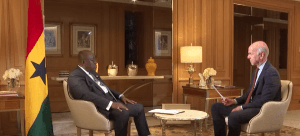- Abaare Reports
- Addi Kujay
- AfricaCNNnews
- Afriyie Kwaku Boachie
- AHAFO
- Alby News Ghana
- ASHANTI
- BONO EAST
- BRONG AHAFO
- Canard Afriq
- Cash In Trash
- CENTRAL
- Cherries
- Club Mate
- Courageous World
- Crest City News
- Current Affairs
- Daily Biz
- DailySpot
- Daniel Kaku
- Da Spicy News
- DC KWAME KWAKYE
- EASTERN
- EBI
- Facts Check
- Gabs Feed
- Ghana News Timeline
- Ghana News Update
- Godblessed1
- GREATER ACCRA
- Great Okocha
- Harry Graphic
- iNews
- Info News Ghana
- King B
- Kofipedia
- Lovely
- Managing GH
- Man Zekay
- Mart News Empire
- Maxkaytheblogger
- Mohammed Zakwan
- MyDailyNews
- Nana Kay News
- News Hub GH
- News Today
- News Zone 360
- Nine 9
- NORTH EAST
- NORTHERN
- ObuabaMedia
- OTI
- Priests News
- Royalnews360
- Sahara Writers
- SAVANNAH
- Simpsons Blog
- Skate News
- Smart News Ghana
- SpinnerWeb
- Teddytheblogger
- Ted News Ghana
- The news
- TheoNews
- Trending Now
- UPPER EAST
- UPPER WEST
- VOLTA
- Wadupgh
- Web Brief
- WESTERN
- WESTERN NORTH
Nana Kay News Blog of Wednesday, 19 April 2023
Source: Island Reporters
Dr. Kwame Nkrumah Attempted To Regain Power Following His Overthrow.

Information reveals that Ghana's Founding President, Osagyefo Dr. Kwame Nkrumah, intended to return to power if not for the betrayals of some of his appointees who went down with him in the 1966 coup.
He went to Hanoi, Vietnam, on a peace mission but was unable to return due to a coup d'état that occurred during his absence. While in exile, Nkrumah reflected on the handshakes and well-wishes he received from Harlley and others. These charming and ingratiating men were constantly contemplating treason and treachery. They had even plotted my assassination on the final day, but abandoned the idea later."
He continued, "I recall shaking hands with Major General Barwah, who three days later was executed in cold blood by rebel army personnel for refusing to surrender. I had no idea that I would never see him again, or that Zanerigu, Commander of the Presidential Guard Regiment, Kojo Botsio, Kofi Baako, and other ministers present at the airport would soon be captured by renegade soldiers and police officers and placed in jail."
In the declassified information, Dr. Nkrumah's other name is revealed to be Kofi Wea, as depicted and circled above on a placard within jubilant throngs in Accra.
Deep-throat sources indicated that Dr. Kwame Nkrumah was attempting to regain power, but his construction blocs, which were his fraternity before the coup, disintegrated in the terrible circumstances that followed his overthrow.
Principal appointees of Nkrumah feared that their properties would be confiscated by the government of the National Liberation Council if they could not prove the source of the funds used to acquire them. It was stated that those who could not prove the source of their material gains soon became double agents and informants for the junta's intelligence services.
The grapevine asserted unequivocally that Dr. Kwame Nkrumah intended to take the coup-makers by surprise and return to power within a year if not for the "fallen" character of his political cohorts in Ghana. "Unfortunately, however, these elaborate and arduous efforts were sabotaged by many of the men (or so-called Nkrumaists) who had enjoyed life in positions of substance and trust under his leadership in Ghana prior to the 1966 coup that dethroned him," the primary source stated.
Dr. Nkrumah was quoted as saying from exile, "It is a great disappointment and sorrow that I often reiterated, that if Nkrumah's top political associates in Ghana had not sold their consciences for bread and butter, the ex-president would have regained power in less than a year after his overthrow."
The leader of Guinea Conakry at the time, Sekou Toure, made Nkrumah a co-president of his country, but cancer progressively sapped his vitality. He died in a hospital in Romania and was temporarily buried in Guinea before the new military commander of Ghana, Gen. Kutu Acheampong, ordered the transfer of his remains to his hometown, Nkroful, in Ghana's Western region.
In 1991, another military commander, Flt. Lt. Jerry John Rawlings, supervised the construction of the Mausoleum where Nkrumah was ultimately interred. His Egyptian wife, Fathia, died in Cairo in 2007 and was also interred in the Accra Mausoleum. The location is currently a tourism haven. The African Union named Dr. Kwame Nkrumah Africa's personality of the century, surpassing South Africa's Freedom Fighter Nelson Mandela and other continental icons.
Dr. Kwame Nkrumah, Ghana's first president and a Pan-Africanist leader, is interred in a mausoleum in central Accra.











